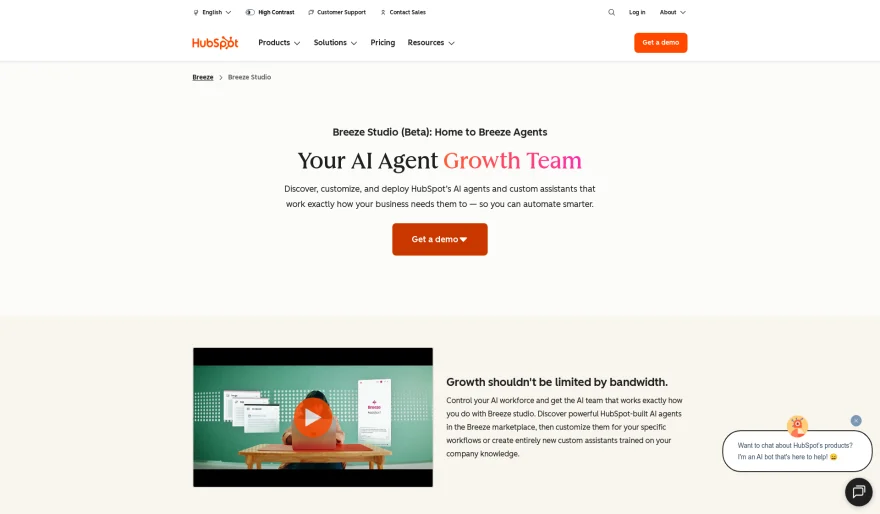Stay Ahead of the Curve
Latest AI news, expert analysis, bold opinions, and key trends — delivered to your inbox.
HubSpot Launches AI Agents to Automate Marketing, Sales & Support
2 min read A quiet but massive shift: less headcount, faster cycles — and fresh pressure on Salesforce & Microsoft. Is this the year CRMs go fully AI-first? September 04, 2025 13:30
HubSpot just dropped a major upgrade at its 2025 Inbound conference: AI agents that can automate marketing, sales, and customer service in real time — no prompts, no micromanaging.
Think about it: before your team logs in, support tickets are already resolved, follow-ups drafted, sales forecasts updated — all running on HubSpot’s new Breeze framework. It’s not just automation; it’s a shift toward an AI-first operating model.
Why it matters:
For mid-sized businesses and fast-scaling startups, this could mean cutting headcount without cutting output — a move that investors and operators pay close attention to in tight markets. And it places fresh pressure on Salesforce, Zendesk, and Microsoft, who can’t afford to look slow in a space that’s heating up fast.
The catch:
Push too far, and customer interactions start to feel synthetic — a real risk as AI fatigue grows. And with this level of automation, data privacy and regulatory compliance become pressure points, especially under tightening EU and U.S. oversight.
Looking ahead:
If adoption sticks, HubSpot could cement itself as the mid-market AI-first CRM by year’s end. But this isn’t just about features — it’s about who sets the standard for AI-driven business ops: HubSpot, Salesforce, or an entirely new player waiting in the wings.



















 AI Agents
AI Agents